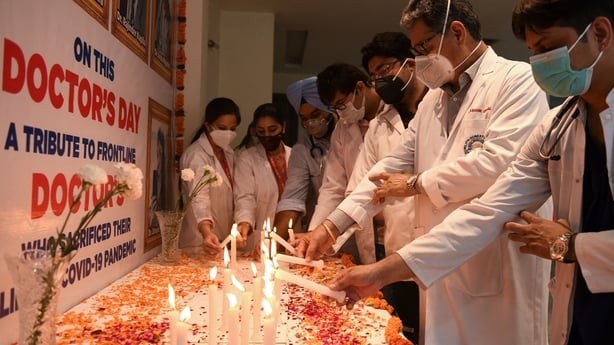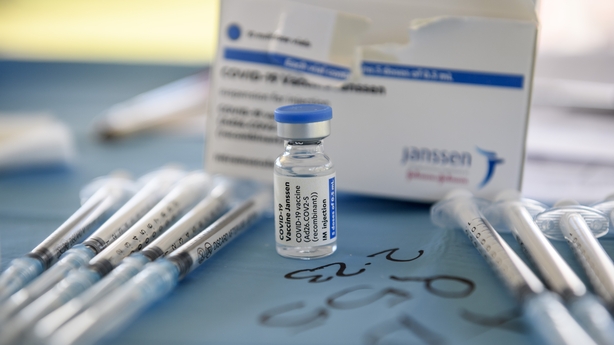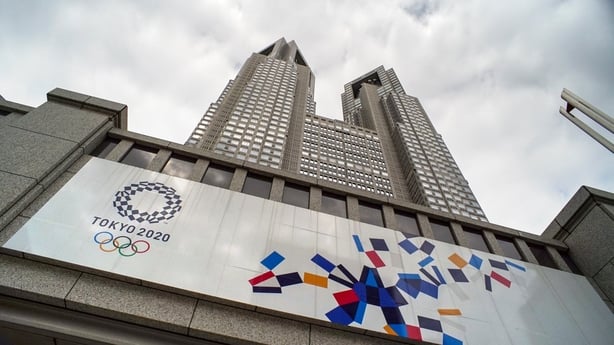Germans who are vaccinated against Covid will not have to go into full lockdown again and will enjoy more freedoms than unvaccinated people in case of another virus resurgence.
This was the message from the country's health minister today.
"As long as there are no mutations that impact the protection from vaccines... then being fully vaccinated means that restrictions of the kind we saw last winter will not be necessary, needed or legally appropriate," Jens Spahn told reporters in Berlin.
Germany currently has very low infection numbers and has relaxed most of its virus curbs.
But concerns are growing about the spread of the more contagious Delta variant and the likelihood of cases climbing again because of summer travel.
Mr Spahn reiterated pleas for Germans to roll up their sleeves to prevent a fourth pandemic wave this autumn.
"The more people get vaccinated this summer, the better the autumn will be," Spahn said.
Chancellor Angela Merkel's chief of staff, Helge Braun, said earlier that scientists agree fully vaccinated people "are not really at risk and don't pose a danger to others".
Vaccinated people should therefore be allowed to do things like go shopping or attend concerts, Mr Braun told broadcaster MDR.
"For this large part of the population, many sectors that were completely shut down in the past will not have to close again," he said.
More than 55.1% of German adults, or 45.8 million people, have had at least one Covid shot. Over 37% are fully vaccinated, according to government data.

India's Covid-19 death toll passes 400,000
India has recorded over 400,000 deaths from the coronavirus, half of them during a second wave in the past few months that overwhelmed the healthcare system and crematoriums.
India has recorded 30.45 million cases since the outbreak of the pandemic last year, and is the second-most affected country behind the United States, which has 33 million cases.
The United States has over 604,000 deaths and about 518,000people have died in Brazil.
India, the world's second-most populous nation, recorded 853 deaths in the past 24 hours, health ministry data showed.
That took it past the 400,000 mark, with the last 100,000 being added in just 39 days, according to a Reuters tally.
But health experts believe India may have undercounted deaths significantly and the actual number could have reached one million or even higher.
Scores of bodies washed up along the Ganges river in northern India in May, as people struggled to keep pace with deaths and cremations at the peak of the second wave.
"Undercounting of deaths is something that has happened across states, mostly because of lags in the system, so that means we will never have a true idea of how many people we lost in this second wave," said Rijo M John, a professor at the Rajagiri College of Social Sciences in the southern city of Kochi.
Last month, Bihar, one of India's poorest states, revised its total Covid-19 death toll to 9,429 from 5,424, after an order from a local court.
India recorded a total of 200,000 deaths at the end of April, but took just 28 days to get to 300,000 deaths.
Hospitals ran out of beds and life-saving oxygen during the second wave in April and May and people died in car parks outside hospitals and at their homes.
Cases have declined steadily since hitting a peak in May, but government officials and experts have warned that a third wave looms, as the country slowly reopens and a new variant, locally called the Delta Plus, emerges.
J&J says its Covid-19 vaccine effectively combats Delta variant
Johnson and Johnson's single-shot Covid-19 vaccine is effective against the highly contagious Delta variant, with an immune response lasting at least eight months, the company said.
The antibodies and immune system cells in the blood of eight people vaccinated with the J&J jab effectively neutralised the Delta strain, which was first identified in India, researchers found.
A second study with 20 vaccinated patients at Boston's Beth Israel Medical Center had similar results.

The data was sent to bioRxiv, a free online site for unpublished scientific preprints where authors "are able to make their findings immediately available to the scientific community and receive feedback on draft manuscripts before they are submitted to journals," according to the site.
"We believe that our vaccine offers durable protection against Covid-19 and elicits neutralising activity against the Delta variant," said Paul Stoffels, J&J's chief scientific officer, in a company statement.
Mathai Mammen, head of Janssen Research & Development at Johnson & Johnson, said that data "for the eight months studied so far" shows that J&J's single-shot vaccine "generates a strong neutralising antibody response that does not wane; rather, we observe an improvement over time."
The Delta variant tore through in India in April and May and has since spread around the world.
A report by the European Union's disease control agency ECDC estimated the more contagious strain could account for 90% of new cases in the EU by the end of August.
Russia's Covid-19 daily death toll climbs to new pandemic high
Russia registered a record number of daily Covid-19-related deaths amid a surge in cases across the world's largest country that the authorities blame on the infectious Delta variant.
The government's coronavirus taskforce said 679 people had died in the last 24 hours, the highest figure confirmed in a single day since the pandemic began.
It also reported 23,218 new infections in the last 24 hours, including 6,893 in Moscow.
The Russian capital, the epicentre of the outbreak throughout the pandemic, is racing to repurpose hospitals to treat an influx of patients, Anastasiya Rakova, the city's deputy mayor, said.
Now, with this explosive growth in infections, this (hospital) capacity is no longer enough and we will additionally add other hospitals again to combat the virus, as fast as possible, I hope," Russian news agencies quoted Rakova as saying.
"(But) we'll do everything possible not to declare a lockdown," she said
The surge in cases has prompted officials to impose an array of measures to compel or encourage people to get vaccinated against Covid-19.
Vaccines are widely available, but demand for the shots has been tepid and polls show many people do not
want to have them.
Around 2.6 million people in Moscow have had at least the first component of a vaccine out of a population of more than12.5 million, Ms Rakova was cited as saying.
Japan PM warns of closed-door Olympics as virus cases rise
Japan's prime minister has warned that the Tokyo Olympics could be held behind closed doors, as virus cases rise in the city just three weeks before the Games begin.
Organisers decided last month to set a limit of 10,000 fans or half of each venue's capacity for events at the pandemic-postponed Games.
But Yoshihide Suga repeated cautions that spectators could be locked out of competitions if the situation worsens, with the government expected to extend anti-virus measures covering Tokyo as new cases climb.
"There is a possibility of there being no spectators" at the Games, Mr Suga. "We will act with the safety and security of the Japanese people as our top priority."
The Yomiuri Shimbun daily said that spectators could be barred from events held in the evening or in large venues, citing unnamed sources.
The Yomiuri and other media said organisers are also likely to delay a ticket lottery for oversubscribed events, which was set to take place next Tuesday.

"Infections are rebounding in Tokyo and other places, and people are calling for prevention measures to be strengthened," the Yomiuri report said.
Covid-19 cases have been rising in Japan since a state of emergency was lifted last month and replaced with softer restrictions that are set to expire on 11 July.
But the government is likely to extend them as early as next week, meaning they could still be in place when the Games open on 23 July.
Up to 5,000 spectators are allowed at sporting events under the current measures, which also require restaurants and bars to close early.
Organisers were set to hold a lottery next Tuesday to allocate tickets for events that are oversubscribed under current attendance limits.
They need to reclaim around 900,000 of the 3.6 million tickets that are already spoken for, with reductions required in eight sports and the opening and closing ceremonies.
But uncertainty over attendance limits now means the lottery is likely to be postponed - leaving some fans sweating on their places less than three weeks before the Games begin.
No more tickets will be sold and spectators from overseas have already been barred from attending.
Japan's virus outbreak has been less severe than in many countries, with around 14,800 deaths overall, but experts warn that another wave of cases could stretch medical services around the time of the Games.
Around 11% of the population is fully vaccinated so far.

